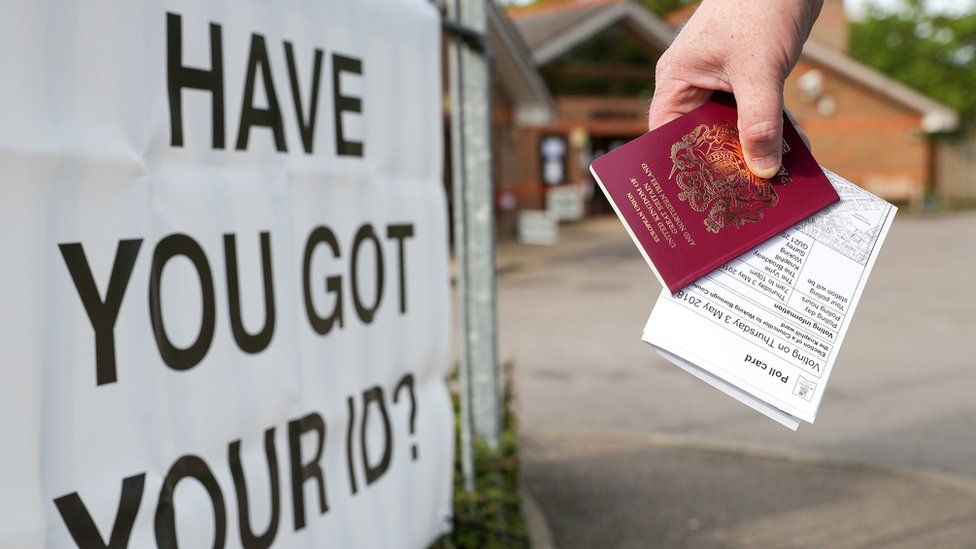ARTICLE AD BOX
 Image source, PA Media
Image source, PA Media
By Sam Francis
Political reporter
Voter ID could cause "serious disruption" to the general election, a local government think-tank has said.
Next year will see the first general election where all voters will have to show a valid form of voter photo ID.
The government claims the system will crack down on potential voter fraud.
But electoral administrators surveyed by the Local Government Information Unit (LGIU) warned they will not have enough staff to implement the new rules, without more funding.
About 14,000 people were unable to vote at May's local elections in England because they didn't have a valid ID. Electoral Commission research found 90% of voters at May's election were "satisfied with the process of voting".
The Electoral Commission said the true figure is thought to be higher as some of those who wanted to vote at polling stations might have turned away after reading the requirements at the entrance but were not formally recorded.
Ethnic minorities and unemployed voters were more likely to be turned away, the electoral watchdog found.
In a report out on Wednesday, the commission called on the government to expand the list of accepted ID documents to "remove barriers" to voting.
The government says it is still "learning lessons" from May's initial rollout of voter-ID rules.
But two separate reports published on Wednesday raise serious concerns.
The LGIU report warns voters will be turned away at the general election, expected next year, because there will not be enough staff to check valid ID and produce Voter Authority Certificates.
More funding from central government was needed to ensure "electoral administrators have the resources they need to make elections happen", said Jonathan Carr-West, chief executive of the LGIU, a network of 2,000 local authorities.
"It is still not clear that voter ID brings any benefits to the process, and indeed the worries highlighted in our interviews are not addressed by the policy," he added.
"Elections are an essential part of our democracy.
"Members of the public need to be certain that they are secure, inclusive, well-organised and - most crucially - that the results represent their genuine preferences about how the country should be run."
The Local Government Association echoed this view, saying council election teams had to rely on help from areas without elections in May and this would not be sustainable at a general election.
In a separate report, the Electoral Commission calls on the government to expand the list of accepted ID documents to "remove barriers" to voting.
The commission also suggested allowing voters to cast their ballot without accepted ID if another registered voter could vouch for their identity.
Labour's shadow minister for democracy Florence Eshalomi said: "It is wrong that the Conservatives have snatched the ability of legitimate voters to have a say in their services and society.
"The government must urgently respond to these reasonable proposals by the Electoral Commission and recognise the potential for much wider damage to democracy at a general election if they fail to take action."
Speaking for the government, elections minister Baroness Scott said: "We are committed to ensuring everyone has the opportunity to have their say in our democracy.
"We are ensuring we fully understand how the policy has operated in practice, what has gone well and where there are any areas for improvement in the future."
The LGIU surveyed 171 electoral administrators who helped to deliver the May 2023 local elections. The survey found nine out of 10 administrators reported problems with recruiting enough polling station staff.
Eight out of 10 administrators surveyed reported that the new rules had made recruiting and retaining polling station staff more difficult.

 1 year ago
22
1 year ago
22








 English (US)
English (US)